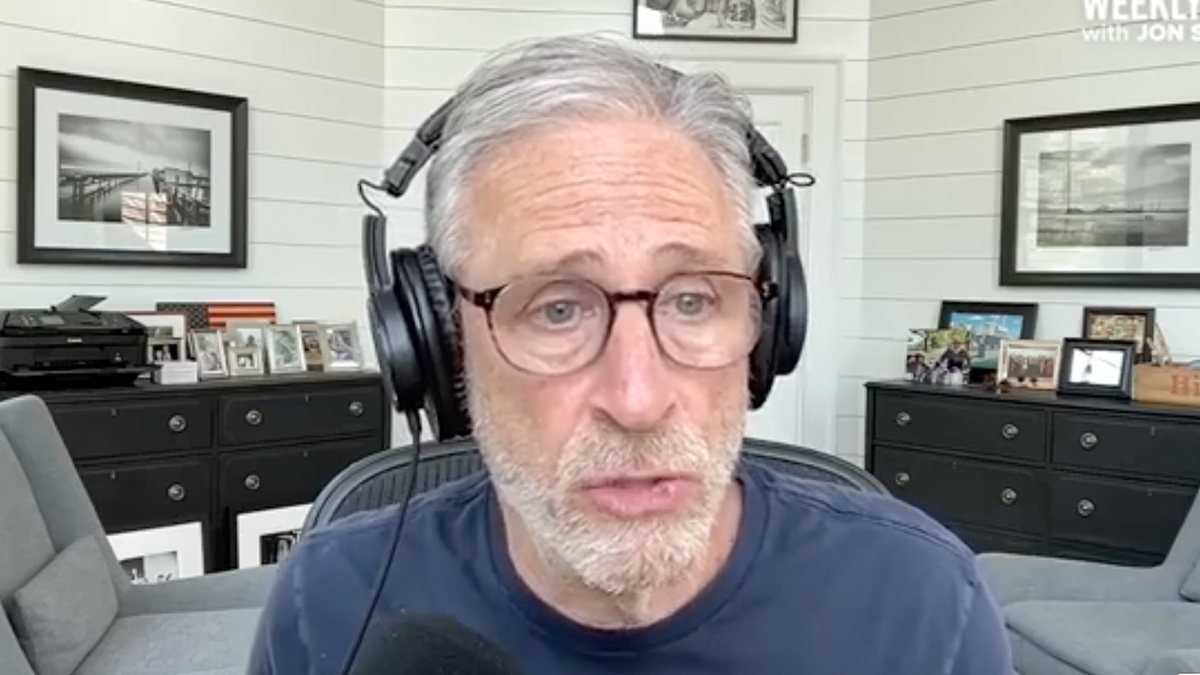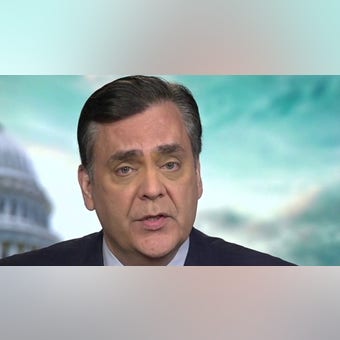Anti-free speech culture in government, academia: Jonathan Turley
Fox News contributor Jonathan Turley discusses the special counsel in former President Trump’s classified documents case pushing for a gag order on ‘America Reports.’
"The First Amendment Is Out of Control." That headline in a recent column in the New York Times warned Americans of a menace lurking around them and threatening their livelihoods and very lives. That menace is free speech and the media and academia are ramping up attacks on a right that once defined us as a people.
In my new book "The Indispensable Right: Free Speech in an Age of Rage," I discuss how we are living in the most dangerous anti-free speech period in our history. An alliance of the government, corporations, academia, and media have assembled to create an unprecedented system of censorship, blacklisting, and speech regulation. This movement is expanding and accelerating in its effort to curtail the right that Supreme Court Justice Louis Brandeis once called "indispensable" to our constitutional system.
It is, of course, no easy task to convince a free people to give up a core part of identity and liberty. You have to make them afraid. Very afraid.
The current anti-free speech movement in the United States has its origins in higher education, where faculty have long argued that free speech is harmful. Starting in secondary schools, we have raised a generation of speech phobics who believe that opposing views are triggering and dangerous.
Anti-free speech books have been heralded in the media. University of Michigan Law Professor and MSNBC legal analyst Barbara McQuade has written how dangerous free speech is for the nation. Her book, "Attack from Within," describes how free speech is what she calls the "Achilles Heel" of America, portraying this right not as the value that defines this nation but the threat that lurks within it.
McQuade and many on the left are working to convince people that "disinformation" is a threat to them and that free speech is the vehicle that makes them vulnerable.
t
It is a clarion's call that has been pushed by President Joe Biden who claims that companies refusing to censor citizens are "killing people." The Biden administration has sought to use disinformation to justify an unprecedented system of censorship.
As I have laid out in testimony before Congress, Jen Easterly, who heads the Cybersecurity and Infrastructure Security Agency, extended her agency’s mandate over "critical infrastructure" to include "our cognitive infrastructure." The resulting censorship efforts included combating "malinformation" – described as information "based on fact, but used out of context to mislead, harm, or manipulate." So, you can cite true facts but still be censored for misleading others.
FOUNDERS' JULY 4TH LESSON: DIVIDED BY POLITICS BUT UNITED IN CORE VALUES OF A FREE PEOPLE
The media has been running an unrelenting line of anti-free speech columns. Recently, the New York Times ran a column by former Biden official and Columbia University law professor Tim Wu describing how the First Amendment was "out of control" in protecting too much speech.
Wu insists that the First Amendment is now "beginning to threaten many of the essential jobs of the state, such as protecting national security and the safety and privacy of its citizens." He bizarrely claims that the First Amendment "now mostly protects corporate interests."
So free speech not only threatens your life, your job, and your privacy, but serves corporate masters. Ready to sign your rights away?
Wait, there is more.
There is a movement afoot to rewrite the First Amendment through an amendment. George Washington University Law School Professor Mary Anne Franks believes that the First Amendment is "aggressively individualistic" and needs to be rewritten to "redo" the work of the Framers.
Her new amendment suggestion replaces the clear statement in favor of a convoluted, ambiguous statement of free speech that will be "subject to responsibility for abuses." It then adds that "all conflicts of such rights shall be resolved in accordance with the principle of equality and dignity of all persons."
Franks has also dismissed objections to the censorship on social media and insisted that "the Internet model of free speech is little more than cacophony, where the loudest, most provocative, or most unlikeable voice dominates . . . If we want to protect free speech, we should not only resist the attempt to remake college campuses in the image of the Internet but consider the benefits of remaking the Internet in the image of the university."
Franks is certainly correct that those "unlikeable voices" are rarely heard in academia today. As discussed in my book, faculties have largely purged conservative, Republican, libertarian, and dissenting professors. The discussion on most campuses now runs from the left to far left without that pesky "cacophony" of opposing viewpoints.
Experts at leading universities were fired or stripped of positions for questioning COVID claims. Conservative faculty have been hounded from schools and conservative sites have been targeted by government-funded programs. Thousands have been banned from social media.
What is particularly maddening for many in the free speech community is how the left has responded to opposition to censorship and blacklisting. Some are claiming to be victims by those who criticize their work to target individuals and groups as disinformation.
Others, like comedian Jon Stewart mock those who object to the erosion of free speech by noting that conservatives are making these objections on television or online. So, according to Stewart, how can there be a problem if you are able to still object? The suggestion is that there can be no threat to free speech unless people are completely silenced.

Comedian and writer Jon Stewart
Stewart insists that "we are surrounded by and inundated with more speech than has ever existed in the history of communication." In other words, because people can still speak, the well-documented systems of censorship and blacklisting must not be so bad.
SEVEN FEDERAL AGENCIES HAVE PUSHED TECH GIANTS TO CENSOR AMERICANS, MEDIA RESEARCH CENTER SAYS
It is not clear what Stewart would accept as sufficient censorship. In universities, polls show both faculty and students afraid to speak openly. The government has funded a host of programs to pressure the source of revenue of conservative sites and to target dissenting voices. Yet, because we are raising objections to these trends, Stewart laughs at the very notion that free speech is under fire. After all, he is doing just fine.
What appears to be a punchline to Stewart is a bit more serious for others who have their livelihoods threatened by the anti-free speech movement.
CLICK HERE FOR MORE FOX NEWS OPINION
Stewart has the benefit of being a liberal comedian on a liberal network. Try being a conservative comedian today getting air time on most cable outlets or college campuses. Like so many academics, everything seems just fine to them. With the purging of opposition viewpoints, those who remain have little to complain about.
The effort to assure citizens that "there is nothing to see here" is belied by a massive censorship system described by one federal court as "Orwellian." Conservatives face cancel campaigns and blacklisting in academic and media forums.
As I discussed in my new book, conservative North Carolina professor Dr. Mike Adams faced calls for termination for years with investigations and cancel campaigns. He repeatedly had to go to court to defend his right to continue to teach. He was then again targeted after an inflammatory tweet. He was done. Under pressure from the university, he agreed to resign with a settlement. Four years ago this month, Adams went home just days before his final day as a professor. He then committed suicide.
CLICK HERE TO GET THE FOX NEWS APP
Many others have resigned or retired. For them, the anti-speech movement takes away everything that brings meaning to an intellectual life from publications to associations to even employment. It is a chilling message to others not to join the "cacophony of ... unlikeable voices."
Some citizens seem sufficiently afraid or angry to surrender their free speech rights. They have lost faith in free speech. For the rest of us, their crisis of faith cannot be allowed to become a contagion. We must have a reawakening in this country that, despite our many divisions, we remain united by this indispensable human right.













































